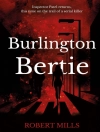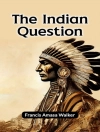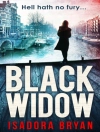In ‘The 39 Steps, ‘ John Buchan weaves a gripping tale of espionage and adventure, reflecting the anxieties of pre-World War I Britain. The novel combines elements of thriller and mystery, characterized by its brisk narrative pace and vibrant prose. Buchan employs a thinly veiled allegory of national identity and the pervasive fears of external threats during an age of burgeoning technological change and political unrest. The protagonist, Richard Hannay, embarks on a perilous journey that underscores themes of innocence lost, courage in the face of adversity, and the fragility of trust, encapsulated in a narrative rich with suspense and vivid imagery. John Buchan, a Scottish author and politician, crafted this seminal work amidst a career steeped in public service and literary accomplishment. His extensive travels and experience as an intelligence officer during World War I informed his perspective on political machinations and human resilience. Buchan’s fascination with adventure, nurtured by his deep appreciation for the Scottish landscape and history, translates into Hannay’s thrilling exploits across a perilous world, offering readers both escapism and reflection. ‘The 39 Steps’ remains a quintessential read for lovers of adventure fiction and thrillers. Its deft plotting and nuanced characterization invite readers to engage not only with Hannay’s frantic race against time but also with the larger questions of loyalty and betrayal. Recommended for anyone seeking a timeless narrative that blends literary sophistication with electrifying action.
Про автора
John Buchan (1875–1940) was a Scottish novelist, historian, and politician, known for his prolific writing and his adventure stories, particularly ‘The Thirty-Nine Steps’ (1915). Graduating from the University of Glasgow and Brasenose College, Oxford, Buchan started his career as a lawyer, yet gravitated towards writing and as a diplomat, combining these with a significant role in public service. His literary oeuvre spans various genres, including history, biography, and politics. However, it is Buchan’s Richard Hannay series, initiated with ‘The 39 Steps’, which cemented his reputation in popular fiction. This classic introduced a style blending espionage and adventure, appealing to a broad readership and influencing the thriller genre. Though written quickly, the tightly plotted narrative, set against a backdrop of impending war, showcased Buchan’s grasp of suspense and his ability to weave contemporary anxieties into a compelling story. Buchan’s contribution to literature extends beyond entertainment; his narrative techniques and character development, particularly the archetype of the accidental hero reflected in Richard Hannay, are often analyzed in literary studies. Despite his venture into the political arena—he served as a Member of Parliament and as the Governor General of Canada—Buchan’s legacy endures through his literature, which remains in print and has been adapted for various media, evidencing his enduring impact on both literature and cultural history (Smith, 1994).












